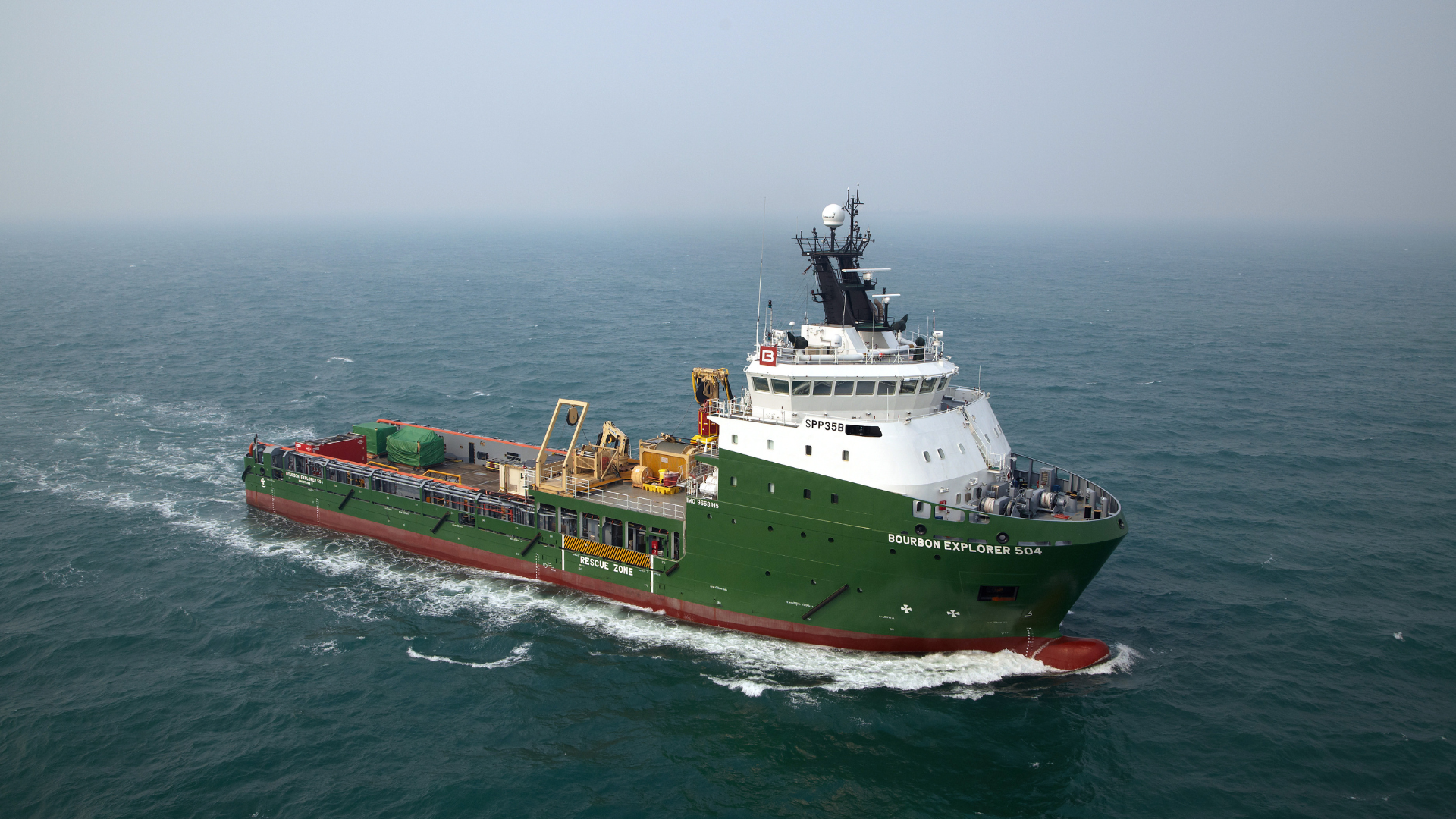Picture credit: Bourbon
The agreement follows a successful pilot with 25 Offshore Support Vessels, which saved an average of 45 to 50 tonnes of CO2 per vessel each month.
Marseille, 18th of July 2024 – Enhanced fleet monitoring and data-driven optimisation will be deployed across BOURBON’s global Marine & Logistics fleet of 104 vessels to boost efficiency and reduce greenhouse gas (GHG) emissions, under a new strategic partnership with marine digitalisation expert Opsealog announced today.
The multi-year agreement follows a six-month pilot on 25 offshore supply vessels (OSVs), which demonstrated average monthly emissions savings of 45 to 50 tonnes of CO2 per vessel. These results were achieved through real-time fleet monitoring and enhanced digitalisation of the vessels’ reporting. This enabled Opsealog to identify efficiency improvements and recommend best practices to ship management teams.
The new agreement covers Bourbon Marine & Logistics’ entire platform supply vessels (PSVs) and Anchor Handling Tug Supply vessels (AHTS) fleet, which is operated in regions such as West Africa, Asia and the Gulf of Mexico. The partnership will allow for centralised fleet monitoring with real-time vessel tracking and streamlined reporting. The data will then be integrated into Opsealog’s Marinsights platform to deliver insights that will help BOURBON optimise vessels’ operational profiles to reduce fuel consumption and associated GHG emissions, while also helping reduce operating costs.
This initiative will support BOURBON’s commitment to reduce its environmental footprint through fleet optimisation, but also enable the company to proactively prepare for upcoming regulatory requirements that will soon cover the OSV sector, including the EU’s emissions trading system (ETS) and Monitoring, Reporting, and Verification (MRV) regulations.
Frédéric Siohan, Standards & Innovation Director at Bourbon Marine & Logistics, said: “Our collaboration with Opsealog is marking a new milestone in the digitalisation of our fleet that was initiated about 10 years ago with the design of highly efficient vessels fitted with Diesel Electric propulsion. Through enhanced real-time monitoring of operations and fuel consumption, the partnership will equip our teams with the right insights, founded in data, to improve our fleet’s day-to-day performance and reduce its carbon emissions.
“In the longer term, having this comprehensive overview of our fleet and potential improvements will enable us to establish new benchmarks for operational excellence and lead the way in sustainable practices. This also offers our customers practical solutions to progress their own decarbonisation journeys,” Mr. Siohan added.
Hugo Prigent, Account Manager at Opsealog, said: “This partnership is a testament to the power of digitalisation in driving operational efficiency and environmental responsibility. Our pilot showed how data can not only paint an accurate picture of each vessel’s fuel consumption and carbon emissions, but also unlock tangible actions to immediately improve their performance. Building on this success, we are proud to expand our partnership across Bourbon Marine & Logistics’ entire fleet and support their sustainability and performance ambitions.
About BOURBON
BOURBON is operating in more than 35 countries and supports its customers by providing them with a wide range of marine services on oil, gas and wind fields. With a fleet of 244 modern-standardised vessels, the company and its 6,000 employees are working to achieve one ambition: to be a main partner for the major stakeholders in offshore energy, by building sustainable and innovative marine solutions. In this way, the Group aims to contribute to the decarbonisation of the offshore energy production value chain.
Strongly rooted in local communities, BOURBON makes proximity to its customers one of its key assets. Its worldwide network of subsidiaries, shipmanagers and partners enables it to operate anywhere in the world with the same level of quality and safety. BOURBON comprises four main activities (Bourbon Marine & Logistics, Bourbon Mobility, Bourbon Subsea Services and Bourbon Wind) and has revenues of 656 million euros in 2023

